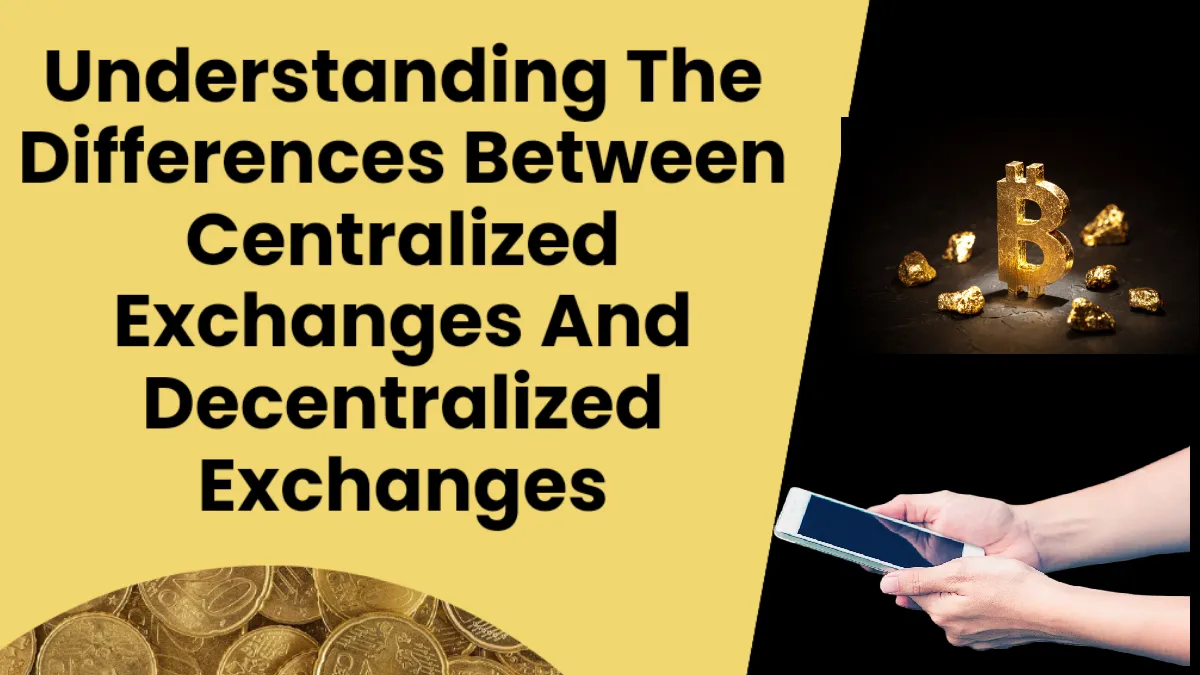
Image recreated on Canva
The future of cryptocurrency lies in the hands of exchanges which enable individuals to trade or change their Crypto assets to Fiat currency when needed. Without exchanges the use of Cryptocurrencies won’t be an easy thing for assets’ holders since direct usage of Cryptocurrencies for transactions involving buying and selling of goods and services are still far from being achieved in our contemporary world. As a Crypto enthusiast and holder, especially those who are just debuting in the Crypto space, it’s important to have some basic knowledge about the different exchanges and how they operate.
In the cryptocurrencies business, there are two types of exchanges which ensure Crypto holders are able to trade or convert their assets to Fiat currencies. These exchanges are namely; the Centralized and the Decentralized exchanges. These are the two types of exchanges we have today. As it stands presently in the crypto space, it is clear today that Crypto exchanges are shifting towards decentralized exchanges slowly and steadily. And It may replace centralized exchanges completely one day,
Now what is the difference between these two exchanges? Let's understand what we mean by centralized and decentralized exchanges.
Centralized Exchanges
Centralized Exchange is a type of exchange that has their own order book for receiving and reviewing all trade orders then matches them accordingly with their own software and servers within an internal closed system. These types of exchanges are user focused, very easy to use, with lower learning curve and better liquidity for their crypto coins.
Those who operate these exchanges are profit oriented, hence they are more client-focused and usually have many users and a dedicated support team. And because of the profit-making nature of centralized crypto exchanges, they have a high level of accountability to solve any issue.
Centralized exchanges are liable to protect users' funds, but not without a fee. The most obvious advantages centralized exchanges offer in return is the ease of use. Here you don’t need a private key for security, you can access your wallet (i.e. your account wallet in the exchange) by your username and password. However, there’s a drawback here since users' funds are fully in the custody of these exchanges. Once a hacker gets hold of the backing software of the exchanges, they can wipe out its users’ funds. For this reason, centralized exchanges have deployed a cold storage system to keep the bulk of funds there but the fault remains.
There are also concerns of high fees, over manipulation of price and threat of an exchange insolvency when the exchange lacks funds to pay users. This would be a scenario where more people withdraw from the exchange than the exchange can pay.
Advantages of centralized exchanges
Enable easy exchange of fiat to crypto.
Offers a simple and familiar interface.
Better customer support.
Disadvantages
Hackers prone.
An easy target for hackers.
Charges higher fees.
Lack of privacy
Decentralized Exchanges
Decentralized exchanges are exchanged which rely on their own servers with a network of computers to match orders. Most decentralized exchanges use smart contracts or a secondary trusted network to search and match orders. Here users are in full custody of managing their wallets. Decentralized exchanges have their own order books to match users’ trade orders and pay that service fees.
Decentralized exchanges are the most secure cryptocurrencies trading platforms. Your funds are entirely in your own care, and there is little to none customer service available for these types of exchanges. One important thing to know about decentralized exchanges is that they do not offer the facility to buy Crypto with Fiat currency or convert crypto to fiat currency, which doesn’t bode well for Crypto currencies traders.
The advantages of decentralized exchanges
Better security as there is almost zero chance of a hack.
Funds are fully in custody of the users.
Low fees.
Disadvantages
Security depends on the strength of the contract codes.
Internal mechanisms are unknown.
3.Bad customer service.
Conclusion
Decentralized exchanges are undoubtedly the best exchanges that have gained popular usage among crypto savvy users so far. However, there are improvements needed for decentralized exchanges to completely eliminate centralized exchanges. Protocols such as Uniswap and Pancakeswap show some improvements in the right direction.